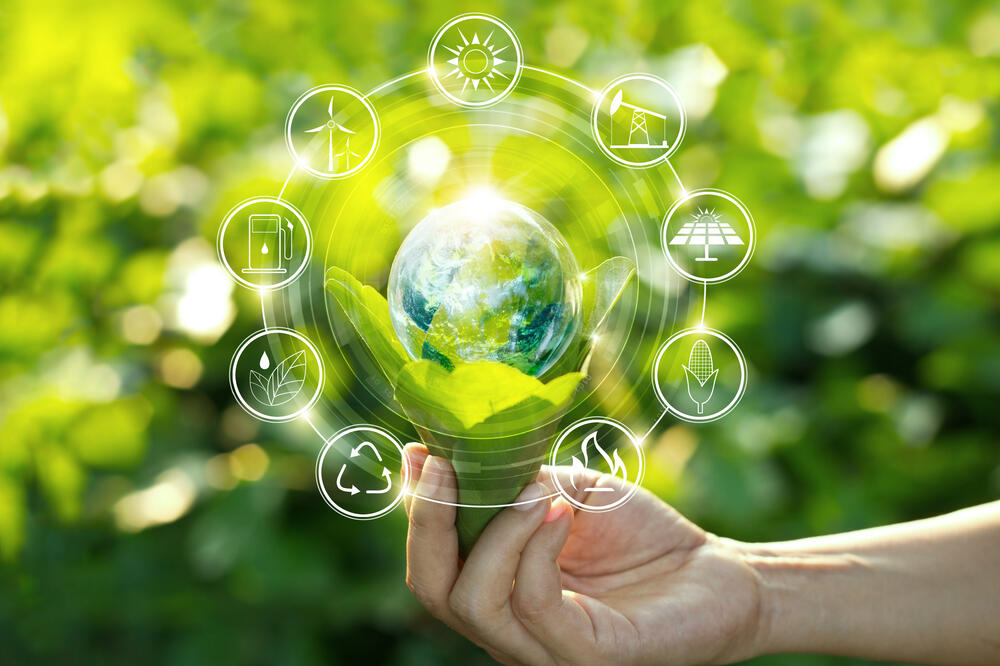Relevant institutions must devote themselves to designing a system that will ensure an environmentally acceptable energy future of our country in an economically just and socially just way, the NGO Eko-team announced.
The International Renewable Energy Agency (IRENA) yesterday, as they say, published the first global report on renewable energy sources that showed how the transformation of the energy system can increase the cumulative growth of global GDP.
"Governments around the world are currently facing the difficult task of bringing the spread of the SARS-CoV-2 virus under control while at the same time introducing major stimulus measures and economic recovery. The emerging crisis has revealed deeply embedded vulnerabilities in the current system. This report shows ways in which it is possible achieve more sustainable and resilient economies by aligning short-term recovery efforts with the medium- and long-term goals of the Paris Agreement (to limit global warming to well below 2 °C) and the UN's Sustainable Development Agenda," the statement said.
Improving the energy transition based on renewable sources is an opportunity to achieve international climate goals while simultaneously strengthening and accelerating economic growth, opening millions of jobs and improving people's well-being and quality of life by 2050, adds the Eco-team.
"The report's key findings indicate that the energy transformation would reduce about 70 percent of global carbon dioxide (CO2) emissions by 2050. Over 90 percent of this reduction would be achieved through renewable energy sources and energy efficiency measures. A new decarbonization perspective shows the path to zero emissions Although this path requires a total investment in the energy sector of up to USD 130 trillion, the socio-economic gains from such an investment would be enormous. According to the report, the transformation of the energy system would contribute to reaching 2,4 percent higher GDP by 2050 than would be achieved current plans".
In Europe, the adoption of the "European Green Deal" which at the same time represents a new growth strategy that will transform the European Union into a society whose economic development is based on the principle of sustainability will enable Europe to be climate neutral in 2050, in addition to the economic growth and development that is planned to be achieved. according to the Eco-team.
"The countries of the Western Balkans still do not share the ambitions of the EU in the process of decarbonizing the economy, even though membership in the Energy Community has made significant progress in the process of harmonization in the field of energy and climate. The trends that exist in the countries of the Western Balkans regarding future investments in the energy sector do not fit into what are the basic postulates of the EU policy in the field of climate and energy. However, the European Union is preparing a package of environmental measures "Green Agenda" for the countries of the Western Balkans with the aim of achieving environmental and energy partnerships with these countries in order to reduce dependence on dirty technologies such as coal, oil and fuel oil. Although concrete projects have not yet been defined, nor has the final amount that will be allocated for these purposes, it is expected that at least 25% of all funds for the region will be directed to environmental projects such as wind farms, solar panels, electromobility and other measures. would mean that our region will have billions of euros in grants and loans with very low interest rates available for green projects in the next five-year period."
Raising ambitions at the regional and national level will be of crucial importance for the fulfillment of interconnected energy and climate goals and the achievement of socio-economic well-being, the Eco-team points out.
"We remind you that the established system of incentives for the production of electricity from renewable sources in Montenegro has so far been socially and economically unjustified, but turning to sustainable energy sources and reducing the use of fossil fuels must still remain in the focus of the country. Relevant institutions must commit themselves designing a system that will ensure an environmentally acceptable energy future of our country in an economically just and socially just way," the announcement concludes.
Bonus video:





